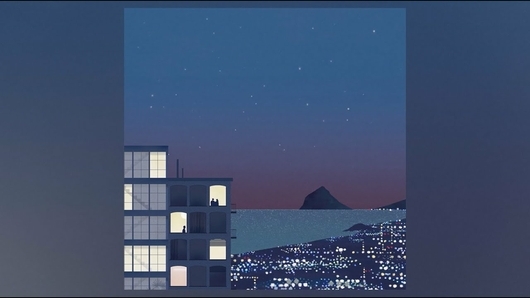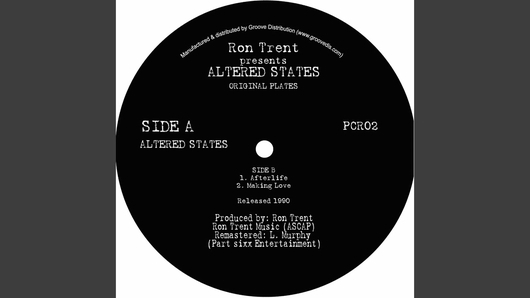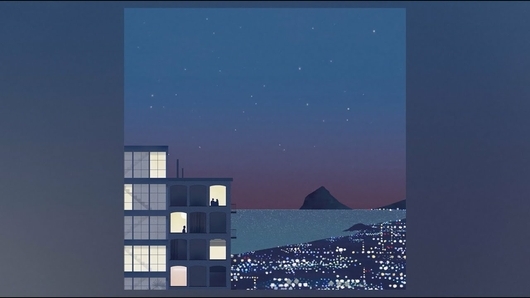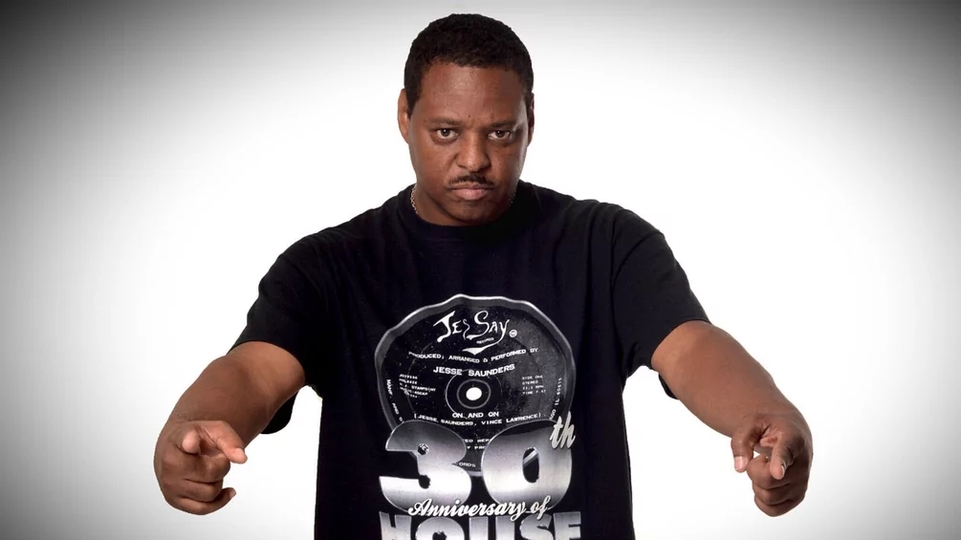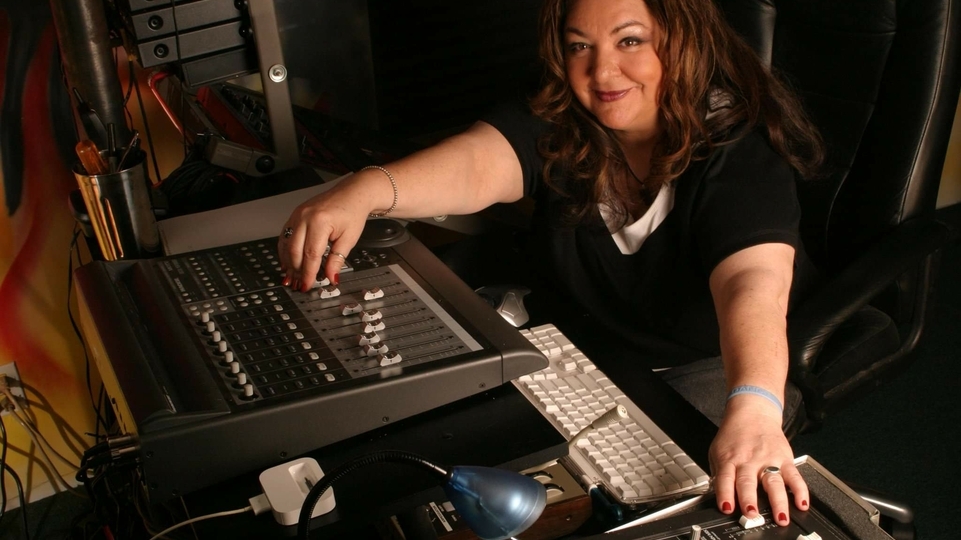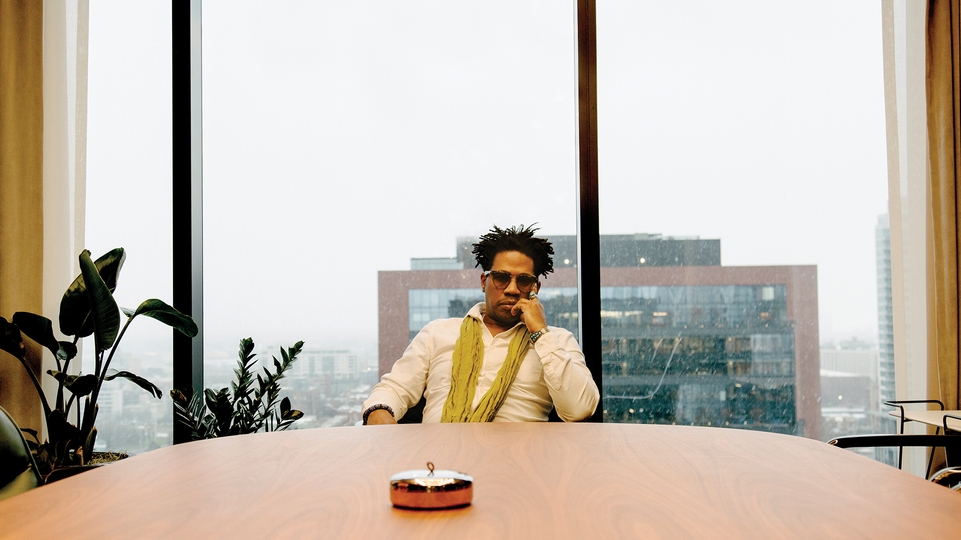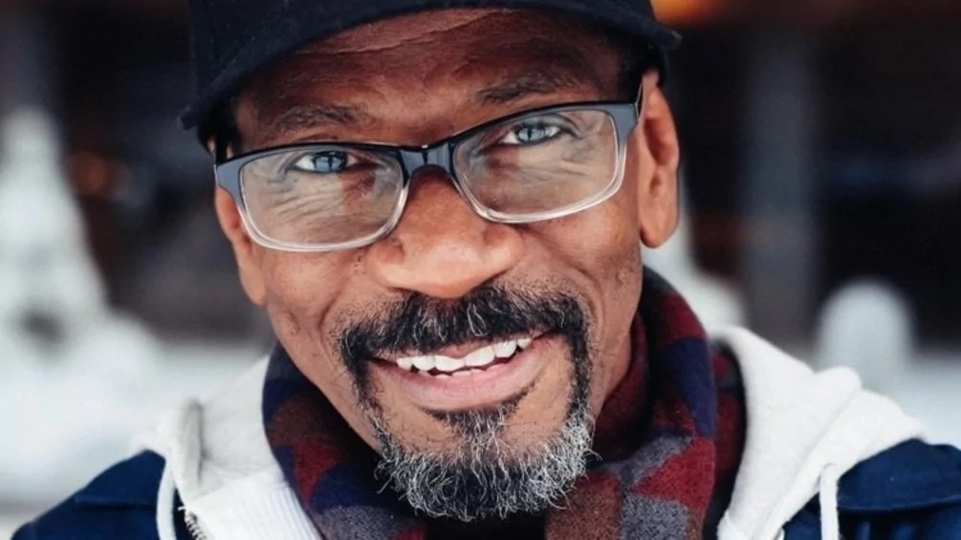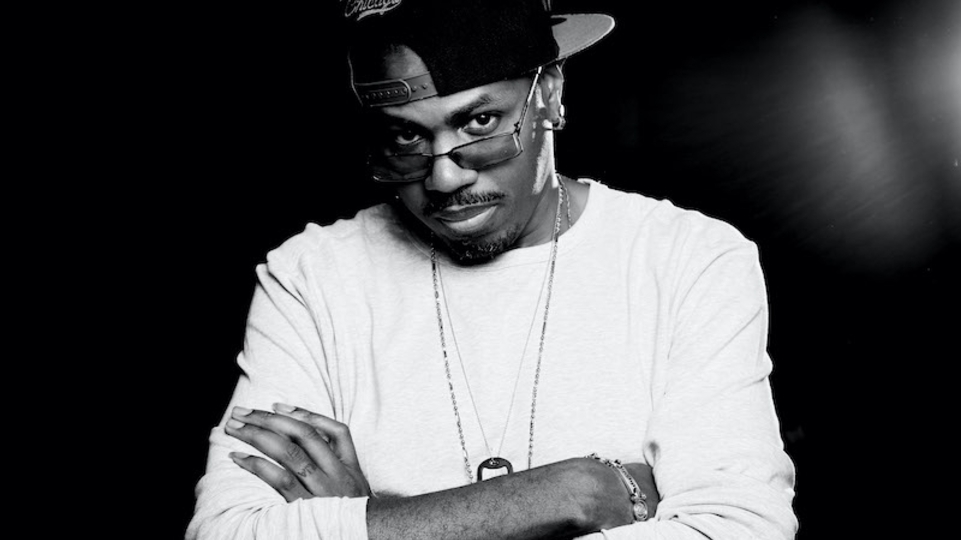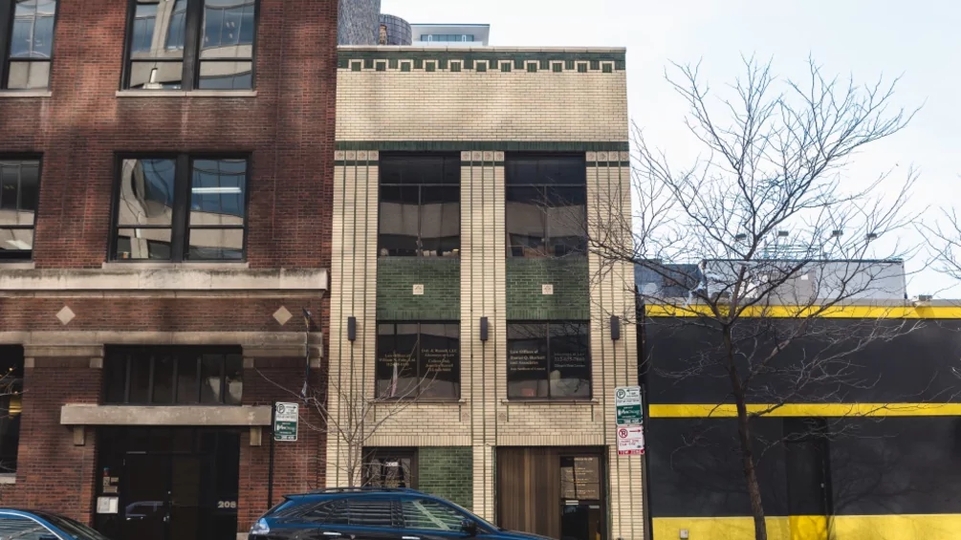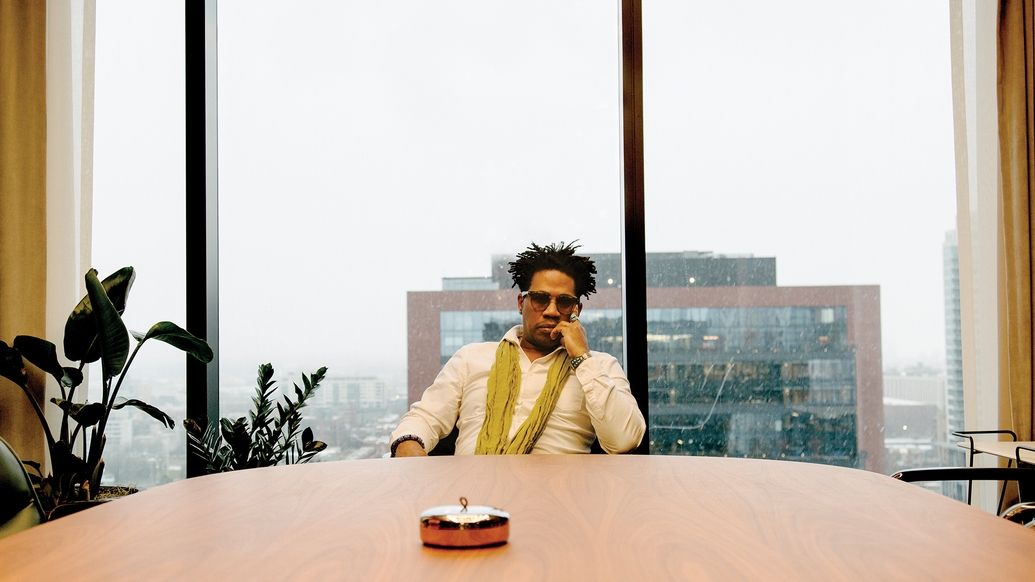
The spiritual and sacred language of Ron Trent's house music
Ron Trent has a deep understanding of electronic music. Beginning his production career in his teens, the venerated Chicago resident has travelled through techno, deep house and Afro house over the years. His latest album ‘WARM: What Do The Stars Say To You’, produced with a live band, demonstrates the duality of his work: it’s futuristic and somehow ancient, cosmic and aquatic. DJ Mag's Ria Hylton catches up with the Chicago house legend to learn more
In October 2019, Tama Sumo and Lakuti held a Your Love party in east London’s Moth Club, and somewhere in the final hours of the night they played ‘How Do You Love’. The 2009 track, which lasts just over 10 minutes, is simply mesmerising: intricately-layered percussion, purple bass and aerated hi-hats march in unison as a voice asks: “How do you love?” The vocalist repeats the question in various cadences, suggesting a different motive with each iteration. “How. Do you love?” she queries one moment, “How. Do you. Love?” she urges the next, casting spells with a simple question. And it’s such a good question. ‘How Do You Love’, we soon learn, is classic Ron Trent — epic, oceanic, journeying — and it’s the track that converted this writer to the Chicago producer.
He may not have been old enough to witness Frankie Knuckles’ early Warehouse sets, nor Ron Hardy’s more aggressive offerings at the Muzic Box, but Ron Trent never stops paying tribute to the spirits of house. In fact, you’ll be hard-pressed to find an interview where he fails to name-drop the pioneers: from Mancuso, Siano and Levan, to Alex Rosner — who designed the first DJ mixer — and those who built the soundsystems that brought this scene to life, Trent’s wont to name-check them all. But having developed friendships with most of them — he was one of a few to attend Hardy’s funeral — Trent may as well have been on those historic dancefloors. Perhaps he was there in spirit, having caught snippets of club mixes on the cassette tapes doing the rounds in the teen’s friendship circles. Either way, he keeps those spirits close – a picture of Knuckles hangs on a wall in his studio, and he brings David Mancuso into our conversation more than once.
When we first attempt an online chat in mid-May, Trent’s on a train from Minneapolis back to Chicago. “It’s normally pretty quiet here, but they’re doing some kind of field trip and talking on the [train] mic about the land,” he laughs, his voice warm with bass. The Chicago native looks remarkably young for someone who’s been in music for the past four decades. His is a broad, peaceful smile, the kind earned through living a good life and forging new paths when things haven’t quite gone to plan. The background sways as he talks us through his new album — ‘WARM: What Do The Stars Say To You’ — but the connection crackles and the field trip tour won’t relent, so we opt for a call when he’s back home.
Six hours later and we’re in Trent’s studio in his south Chicago home, and the talk turns to spirituality. “Music is a sacred language, it’s used to conjure spirit, to honour ancestors, honour ourselves,” he tells DJ Mag, his intonation priest-like, but not preachy. “We’re dealing with something that you can’t really touch but you know it’s there. Sound. You’re dealing with something of a medium shift. If you’re a musician who knows how to house the sonics or if you’re a DJ that knows how to take in the energy of a room and give it to the people, it’s a different level of understanding.”
Not that many people can claim to have elevated a whole scene, but Ron Trent has done exactly that. From his era-defining Prescription label with Chez Damier, residency at New York’s legendary Giant Step, and his vision to keep live instrumentation at the heart of electronic music, he’s done a lot. In doing so, he's helped lay the foundations for a whole new genre: Afro house. We touch on that topic later, but for the moment Trent’s keen to talk about the spiritual source of his inspiration, Yoruba. As a babalawo priest — “as we say, it’s an ounce of blessing and a pound of responsibility” — Trent helps others to see into their future and make sense of their day to day; ‘What Do The Stars Say To You’ feels like an extension of this spiritual work. The project brings together a live band, similar to 2008’s ‘Cinematic Travels’ LP, but is clearly inspired by the music of his youth.
Ivan Conti, often referred to as one of the greatest drummers on earth, and Azymuth’s Alex Malheriros provide the percussion, while French violinist Jean Luc Ponty and Italian ambient maestro Gigi Masin fill the mid and high sections. The popular three-piece band Khruangbin also make an appearance, while Trent can be heard playing the drums, percussion, keys and electronics. The project has been years in the making and his plan is to take it on the road. “The plan is for it to be a global tour and to do a lot of stuff in the States,” he explains. “Bottom line is: live performance, live presentation and bringing it to the people, whoever wants it.”
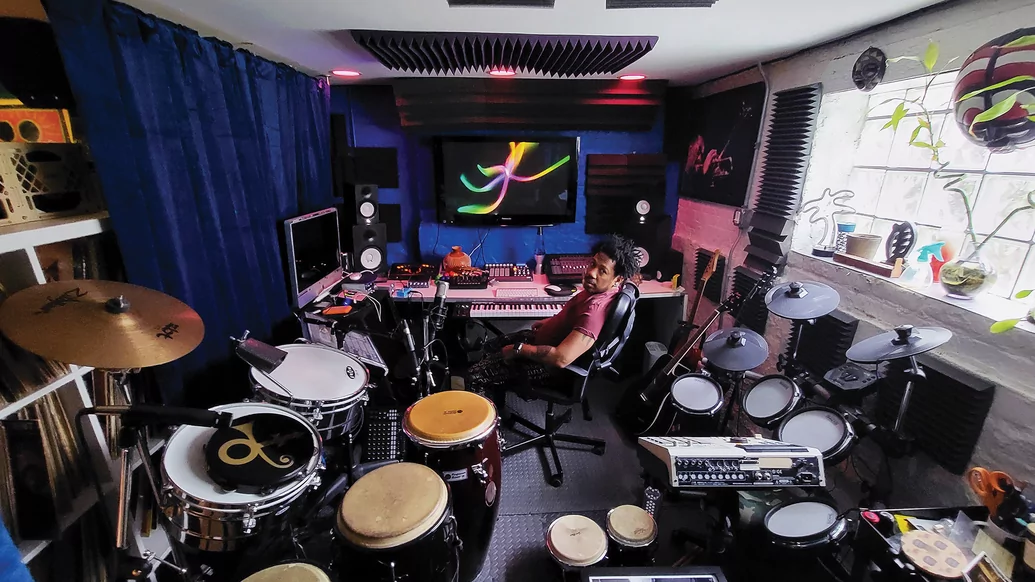
“As a producer, I feel my job is to take the energy out of the ether, filter it through myself and deliver it through instruments, record it and then refine it. It’s my spiritual practice”
There’s a strong duality throughout Trent’s work: it’s futuristic and somehow ancient, cosmic while also aquatic. His productions give a real sense of space, though that feeling of being fully engulfed is always present. But ‘What Do the Stars Say To You’ departs clearly from everything that’s come before. The album calls to mind the celestial-inflections of Lee Ritenour, the funk of early Level 42 and the wonky experimentation of a young Kate Bush. It is, Trent explains, an audiophile’s album, and designed for listening in different locations. “You could be listening in a condo, overlooking the city or looking at the stars.”
But more than that, it’s about destiny, identifying the right path for the listener. “Where’s the place you want to be? What’s the place you’ve chosen to be? We just came out of one of the most trying times we’ve seen in our history — outside of AIDS. A lot of us thought about being in other places or had a greater appreciation for places that we used to take for granted: looking out your window, seeing the city move, the sunset. These moments are very powerful.”
As are Trent DJ mixes. His most recent Boiler Room set for Ash Lauryn’s Underground & Black last year in New York is a seminal lesson in tension and release. “If you know what you’re doing, if you know how to anchor yourself in the energy of the room and the sonics are right, you can really connect on a spiritual level — that’s when the third ear comes in,” he tells us. “It’s about timing, energy, mood. It’s dramatic, it’s very theatrical. You can tell when there’s a DJ that’s playing with intention, let’s put it like that.”
Opening with his remix of musclecars’ ‘Shelter’ — a voyage in itself — Trent shows his Chicago roots, lollipop headphone in tow, working the mixer isolators to full effect, sculpting out sounds, adding colour, promising and then denying release. Halfway through the hour, he cuts out the bass and mids, leaving the crowd with a hiss of a sound. It is one of the most animated Boiler Room crowds we’ve seen and Trent ends, fittingly, with Wood, Brass & Steel’s ‘Funkanova’, a Knuckles and Hardy favourite.
Trent streamed another Boiler Room set from his home studio during the pandemic, opening this time with the bewitching ‘Countdown’ by Lee Ritenour. “‘Countdown’ is a sentimental record — I used to listen to it with my father,” he tells us. “We liked that record a lot — it was one of those tunes where you felt like you were flying. I’m getting goosebumps just thinking about it. Certain records put you in a spiritual place and can make you feel real joy, or introspective. There was a high concentration of that type of music in the early ’80s, for sure.”
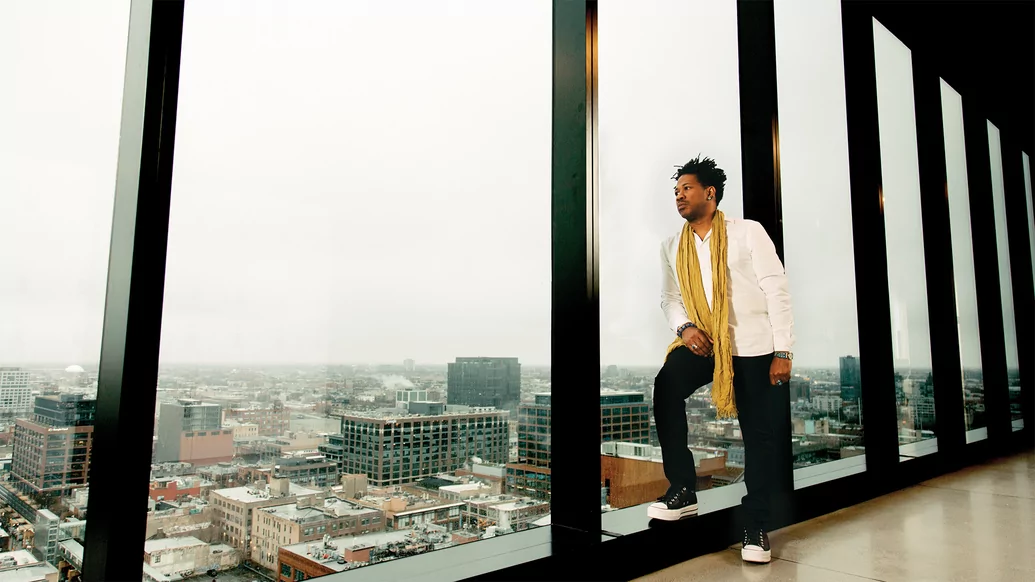
Ronald Lee Trent Jr was born in Massachusetts and raised on Chicago’s south side. His parents met at college and had amassed a vast record collection by the time Jr arrived. His father, a percussionist, ran a record pool for DJs and was Jr’s first musical inspiration. Ron Jr, however, had plans to become either an architect or an archaeologist — there are a few architects in the family — but as a straight street kid, he found himself enamoured by the sounds coming out of the gay clubs and wanted in. Soon enough, he began making tracks, laying out his signature sound, and at the age of 14 had completed his first classic, ‘Altered States’. It would be three years, however, before the world heard the track — according to legend, Knuckles played the 14-minute track three times in one set, which was enough to launch the 17 year old’s career.
But on the release of his debut EP, ‘Afterlife’ in 1990, Trent began to feel uneasy with the techno label he found himself under. In 1992, he released ‘The Weekend’, his first track made on an MPC, with Clubhouse Records, gaining him fans in Amsterdam. The production, though rough around the edges, signalled Trent’s true sonic trajectory. He also hung out with Green Velvet, releasing the ‘States’ EP on Velvet’s Cajual label, and met Chez Damier around this time too. Together the pair forged a new path for Chicago-based house heads under the Prescription label. The aim? To put the Chicago scene back on the map – and it worked. Tracks like ‘Morning Factory’ showed a new way forward for deep house heads, while ‘Come Together’, featuring percussionist Sundiatta, championed a wave of African-influenced house music. “Joe [Claussell] said it inspired him,” Trent tells us.
After a few years the duo parted, and Trent continued to forge a path. But it was hard in the Windy City. “The problem that I’ve honed in on with Chicago is that it has an illustrious history, in terms of record labels and the early developments of blues and jazz recordings — there was industry and recording studios — but in the ’70s and ’80s, the studios started shutting down and moving to the suburbs. At the same time you had this house music happening, people are doing more stuff in their own personal studios — what was missing? The industry.”
Around this time, inspired by the early New York parties, Trent launched a community space on Chicago’s north side. He wasn’t alive when Mancuso started his Loft parties in 1970, but it was a clear inspiration. “David [Mancuso] was using the records to tell stories with his friends. It was a vibrational, transcendental thing,” he tells us. “He helped design and innovate the soundsystems we play on today. He separated the sound — the highs, mids and the bass — positioned them the right way so that there’s this stereo image and you’re fully immersed in the sound. But he was more of a purist, he was more ‘this is the way this was meant to be presented, and my job is to present in the way that it was meant to be played’.”
Trent launched Urban Sound Gallery, a cultural centre to help educate and nurture new talent, in 1995. Many remember it as the U.S.G. record label, but for a while it also existed as a physical space, with “the attitude and energy of what we were creating, this community”. But the venture didn’t last long: “I might have been ahead of my time and also the community wasn’t necessarily supportive. There was a certain level of racism going on — they [the neighbours] were sending police to my door all the time. They were just harassing me to the point where I couldn’t do anything. I lost maybe $40,000 dollars in a short amount of time.”
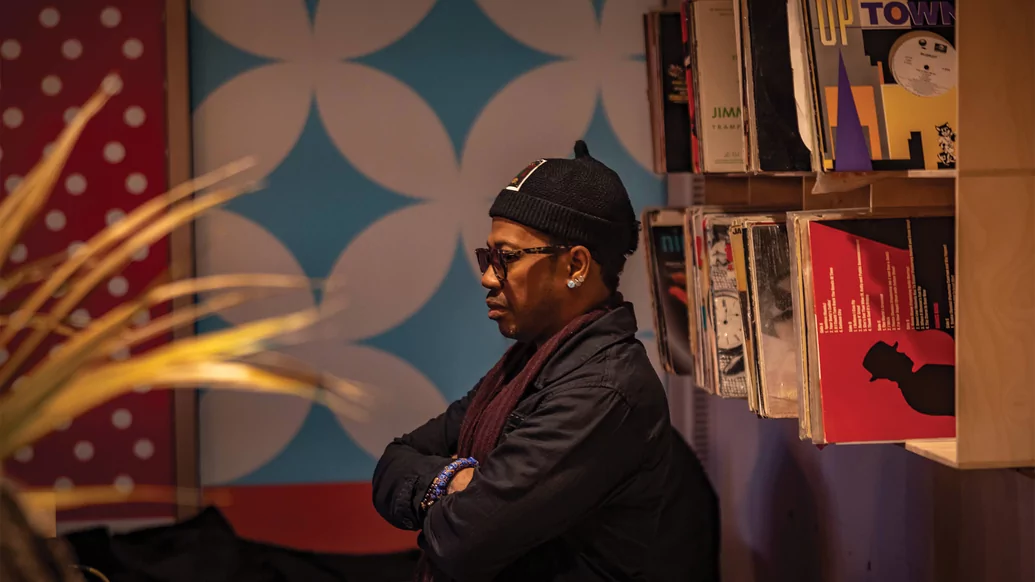
In 1996, Trent moved to New York and spent the next 10 years on a new musical voyage, one that merged the dual worlds of digital and analogue. U.S.G. continued as the African Blues party series but for the time being, he decided to go deeper on the production. As a resident at Giant Step, he worked closely with the Groove Collective, enlisting the club’s in-house band for his productions. He also found a new collaborative partner in the then relatively unknown Anthony Nicholson for his Clairaudience label. Together, the pair released deep house classics like ‘Ncameu’, the ‘Afro Nova’ EP and ‘African Blues’, a full-length album. On these records, live percussion was front and centre and the production had clearly evolved into something bolder, with a clear ancestral thread.
Now, Trent productions feel more layered than ever, while still retaining that expansive, world-building feel. On a good system it’s almost as if you’re moving through the sound. “As a producer, I feel my job is to take the energy out of the ether, filter it through myself and deliver it through instruments, record it and then refine it. It’s my spiritual practice.”
In 1999, Trent made his solo album debut with ‘Primitive Arts’, followed by ‘Cinematic Travels’ in 2008. 2011 was an especially busy year, with three album releases: ‘Scientific Methods Of Storytelling’, ‘Dance Floor Boogie Delites’ and ‘Raw Footage’, but then things went relatively quiet, album-wise.
‘What Do The Stars Say To You’ is a welcome return, an ode to the concept albums Ron Jr was raised on. “I’m very much into building and design — art, structure, I love it. And that’s also what this album is a love letter to. It’s about environments, atmosphere, beautiful places where sound can also be that second or third person in the room.”
This year marks the 40th anniversary of his dad’s passing, as well as four decades spent doing what he loves. In 1982 he made a promise to choose work that he loved. His locations and collaborations have changed over the years, but his musical vision has remained constant.
Trent moved back to Chicago in 2006 and resides on the south side, where he grew up. The Urban Sound Gallery, a bittersweet moment in the artist’s lengthy career, rears its head towards the end of our conversation. “Check this out,” he says, voice booming, joyful. “When I went back home, someone was like, ‘You know they’re throwing parties out of that space you were in?’ I’m like, really? I go there and it’s these young white kids throwing parties, no problem.”
He gives a serene grin. “It is what it is — take it as a lesson, make another way. Make a way out of no way. That’s what our ancestors did.”
